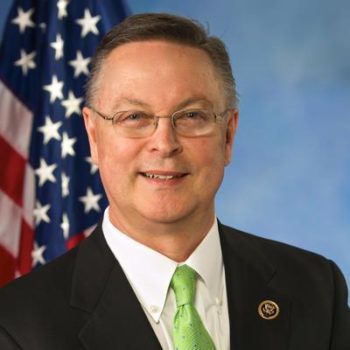Linn County constituent Caleb Gates found inconsistencies on Representative Rod Blum’s recent personal financial disclosure forms. -promoted by desmoinesdem
Members of Congress should serve “we the people.” Because U.S. House members make laws and have access to privileged information, federal law requires them to disclose their financial investments, income, and liabilities every year. According to the U.S. House Ethics Committee, members of Congress must also file a Periodic Transaction Report (PTR) every time they sell, purchase, or exchange more than $1,000 of any stock, bond, or security. This PTR must be filed within 45 days of the transaction.
Representative Rod Blum seems to believe these rules do not apply to him.
I began examining Blum’s financial disclosure forms in the spring of 2017. The public can access these reports through the U.S. House Clerk’s website. At that time, Blum had between $350,000 and $700,000 invested in fossil fuel companies like Exxon Mobil, Conoco Phillips, and PDC Energy, Inc.
House members are only required to disclose a range on their investments, not an exact number, hence the range given for the amount of Blum’s investments in fossil fuels. PDC Energy, Inc. was then being sued by the Trump administration’s Environmental Protection Agency, the Justice Department, and the state of Colorado for violating the Clean Air Act.
Blum has publicly disputed the overwhelming scientific consensus about human-caused climate change. Not only does he deny that human activity is the leading contributor to climate change, he also makes money off of companies that pollute the air. Our member of Congress should represent us – the people of Iowa.
I wrote numerous letters and met with Blum’s staff several times asking him to divest himself from fossil fuel investments. I never received a response. I wrote an open letter and started a Change.org petition calling on him to sell off his fossil fuels stocks. Beginning in January 2017, other constituents in Cedar Rapids and I repeatedly asked for a meeting with our member of Congress.
Finally, on April 23 of this year, Blum and his district director Jack Mescher sat down with us, and I asked him directly to divest from fossil fuels. Up to that moment in the meeting, he seemed attentive. When I made this request, the room temperature dropped. Blum did not answer. During a follow-up conversation with Mescher on June 20, I asked if his boss had made any effort to sell fossil fuels investments. Jack told me he did not know, and furthermore it was “unseemly” (his word) for me to ask Blum to do that.
Holding my elective official accountable is not unseemly. It is my civic duty. “Unseemly” is Blum’s choice to profit off of dirty fossil fuel companies that pollute our air and harm human health.
Blum filed his 2017 Financial Disclosure Report, which is supposed to list all his income, assets, and liabilities, on August 12. This report differs from his 2016 Financial Disclosure form, and some of those changes were not reported as required by law.
For example, in 2016, Blum owned $50,000-$100,000 in PDC Energy Inc. stock. His 2017 financial disclosure form does not list this investment, even though he never filed a PTR to indicate he sold that stock. So either Blum sold that stock and broke House ethics rules by failing to report the sale, or he still owns that stock and failed to report it on his most recent financial disclosure form.
Failing to report that investment would also violate House ethics rules. Blum’s most recent financial disclosure showed that he currently owns $15,000-$50,000 stock in Diamondback Energy, another oil and gas company. Yet he never reported that purchase, again in violation of ethics rules.
Why does Blum not follow House rules on disclosing his fossil fuel investments? Does he have something to hide? Or does he not want his constituents looking into his personal finances? As constituents, we have a right to know about his investments.
Blum must comply with House ethics rules. He may claim this is merely an oversight or a paperwork error. But these oversights, combined with the current ethics investigation into his failure to disclose his involvement with Tin Moon, reveal a pattern of shady financial dealings.
We need a member of Congress whose top priority is to represent Iowa’s first district, not protect his own pocketbook. We need a member of Congress who accepts the science of human-caused climate change, and who will stand up to fossil fuel companies, not profit from them.
Appendix 1: Representative Rod Blum’s 2016 personal financial disclosure form
Appendix 2: Blum’s 2017 personal financial disclosure form
Appendix 3: Blum’s Periodic Transaction Report dated September 26, 2016

